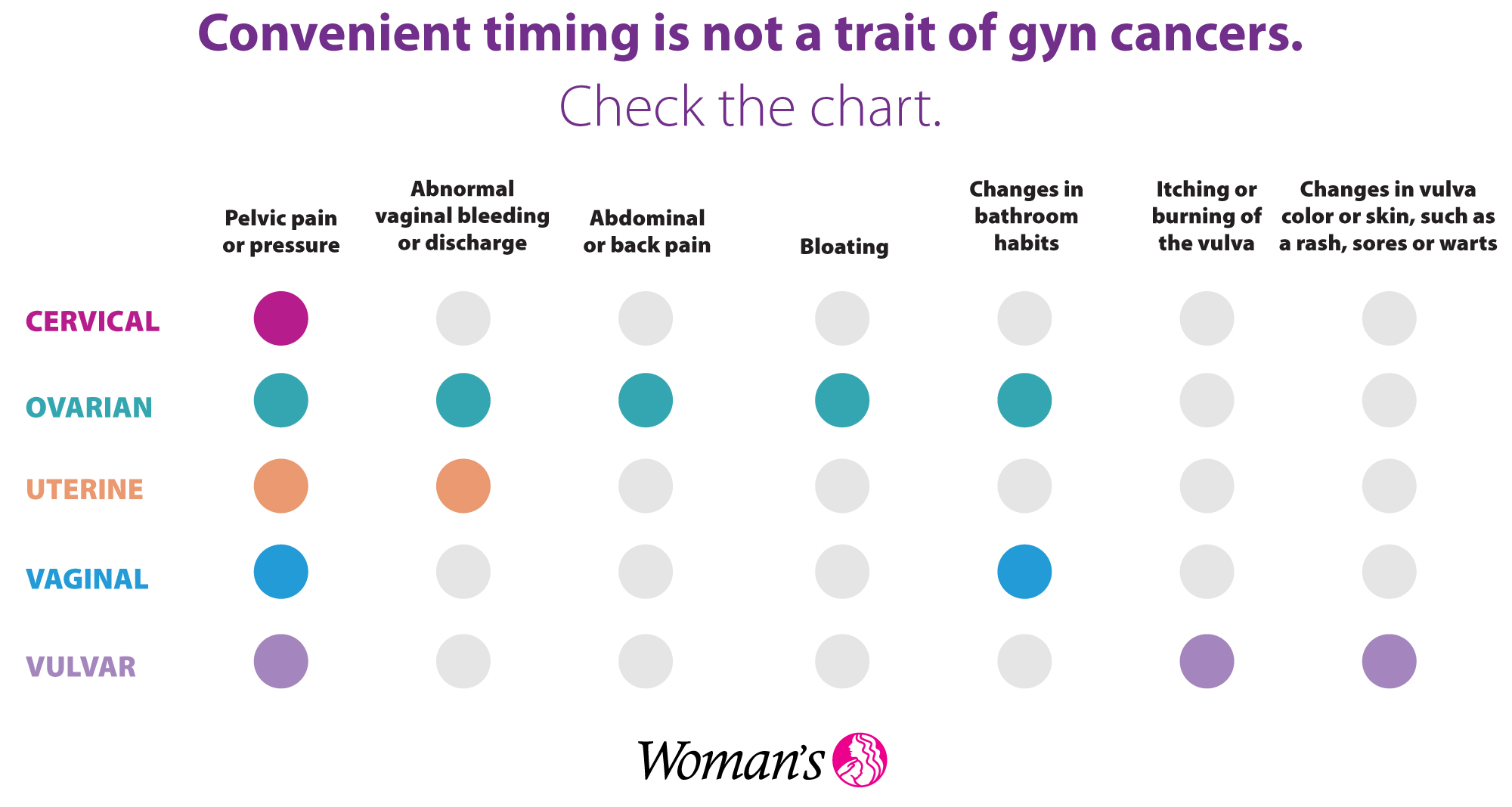Disclosure :: This post is sponsored by Woman’s Hospital.
What All Women Should Know About Gynecologic Cancers

For many women, daily life can be a juggling act. Between packing school lunches, driving the kids to practice, taking a parent to their annual check-up, managing household chores and putting in 40-plus hours at the office, it’s hard to find time to care for your own needs.
Most women know to perform a self-breast exam or even get an annual mammogram, but many overlook their female reproductive organs, especially after their childbearing years. Women should visit their gynecologist every year, REGARDLESS if they are done having children, had a partial or full hysterectomy, or even if they’ve entered menopause. By having a routine pelvic exam and a good conversation, your gynecologist can monitor subtle changes in your body and potentially save your life.
Each year, more than 100,000 women in the U.S. are diagnosed with gynecologic cancers. We’ve asked Woman’s Gynecologic Oncologist Dr. Renee Cowan to explain the different types of gynecological cancers so that we make women everywhere aware.
Uterine cancers are the most common of the gyn malignancies and is ranked No. 4 in new cancer cases in women per year and No. 6 for cancer deaths in American women. The uterus has two parts: the lining, also known as the endometrium, and the muscle layer, also known as the myometrium. A cancer can grow in either portion. The earliest red flag symptom to look out for is abnormal vaginal bleeding. ANY bleeding after menopause is abnormal and should be evaluated by a gynecologist. Pre-menopausal bleeding in between menstrual cycles or after intercourse should also prompt urgent gynecologic evaluation.
While cervical cancer rates in the US have been on the decline, Louisiana continues to be ranked in the top 10 states for new cervical cancer cases–not a top 10 ranking that we want! This cancer is usually caused by the HPV virus which integrates into the DNA of cells in the cervix and causes them to become progressively abnormal until they become a cancer. This is usually a slow process and a Pap smear can detect these abnormal cells and can be removed before cancer develops. Pap smears do not happen in the emergency room! A gynecologic provider will use a special brush to collect the cells from your cervix and send them to be examined under a microscope. This should be done every 1-3 years along with testing for the presence of the HPV virus.
Ovarian cancer is the fifth most common cancer killer for women in the US. These symptoms are often vague and they include weight loss or gain, bloating, constipation or diarrhea, or pelvic pain. If you experience these symptoms, you should be evaluated by your physician. Fifteen to twenty percent of ovarian cancers are related to a genetic mutation. If any member of your family has experienced ovarian cancer, talk to your physician about whether you need genetic testing. If you have had genetic testing that reveals a mutation associated with ovarian cancer, you are eligible to have your ovaries removed (usually via minimally invasive procedure) prior to developing a cancer.
Cancer can also develop in the vagina and vulva, a place where many women forget to look. Similar to cervical cancer, cells within both areas can increasingly become more abnormal and eventually progress into cancer. At Woman’s we encourage every woman to grab a mirror and TAKE A LOOK! Being aware of changes in your anatomy can save your life!


While you may not be able to prevent a gynecologic cancer, Dr. Cowan encourages you to do the following:
- Eat a well balanced diet including lots of vegetables and fruit and limiting processed and packaged foods.
- Keep moving! A body that keeps moving is a body that KEEPS moving! Exercise is not only good for our physiques, hearts, and lungs, but also enables you to be able to handle surgeries and treatments better if you end up needing them.
- Pay attention to your body. Do not ignore any symptoms that raise a flag. Talk to someone about the things that may be bothering you.
- Never ignore bleeding that occurs after menopause. See your gynecologist EVERY year so they can potentially catch something that may not seem abnormal to you.
- Advocate for yourself and your loved ones! Never be afraid to get a second opinion or to ask questions to make sure you understand. At Woman’s Hospital, your health is our priority. We’re here to help you make it yours, too. Allow us to keep you feeling good and healthy so that you can take care of all the things you do for the ones you love.
To learn more or find a doctor, visit womans.org/gyncancer.


















